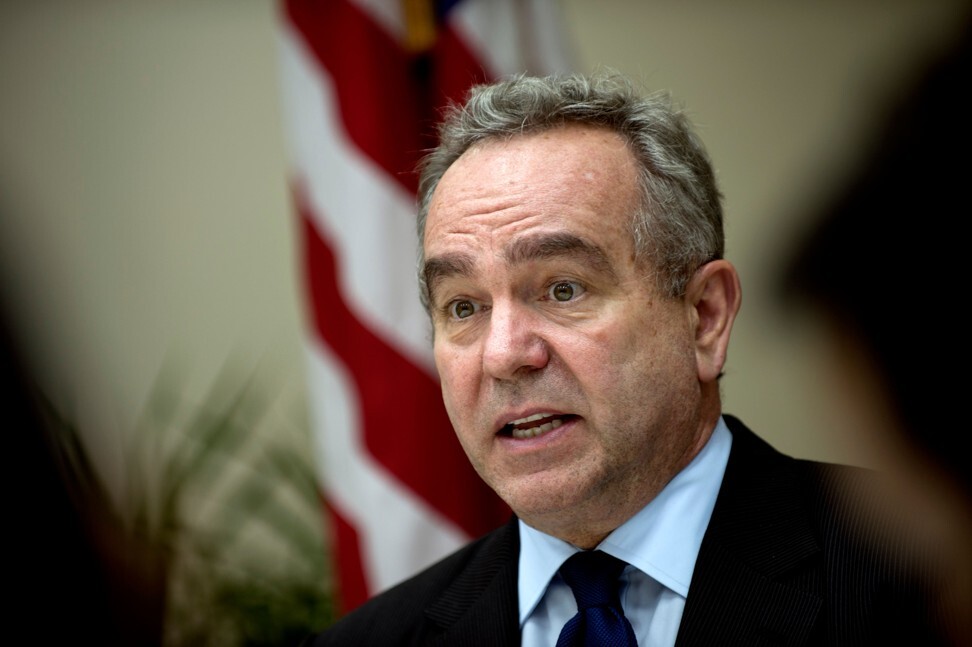
US draws clear line on Taiwan independence but China will still have cause to worry: analysts
- Indo-Pacific coordinator Kurt Campbell says the US supported a ‘strong unofficial relationship’ with Taiwan but not independence
- Chinese analyst says it’s not what Washington says about its relationship with Taiwan, but the way they say it
Beijing welcomes the US’ clear stand against Taiwanese independence but tension is likely to remain high as Washington and Taipei grow closer, Chinese analysts say.
Beijing considers democratic Taiwan to be its own territory, and has vowed to bring the island under its rule, by force if necessary.

“We fully recognise and understand the sensitivities involved here,” Campbell said at a discussion hosted by the Asia Society on Tuesday. “We do believe that Taiwan has a right to live in peace. We want to see its international role, particularly in areas like vaccines and issues associated with the pandemic.
“They should have a role to play here, they should not be shunned in the international community. It is a balance, but it is a balance that the United States accepts and supports.”
Chinese observers said Campbell’s remarks were in line with the official position the United States had taken on Taiwan since 1979 when Washington first established formal diplomatic relations with Beijing over Taipei.
Liu Weidong, a US affairs specialist from the Chinese Academy of Social Sciences, said the US had historically said it did not support Taiwan’s independence, but that Washington was “very particular” in how it expressed this position.
“They say they do not support Taiwanese independence, but this does not mean that they oppose it,” he said.
US no longer sees Taiwan as a problem in ties with China: diplomat
“Campbell saying this now can be an expression of goodwill to China … but it also does not impact the US government at all in deepening their cooperative relations with Taiwan, including supporting Taiwan’s role in international institutions – organisations that only independent countries can participate in.
“The two sides will likely continue to strengthen relations, including in areas where they did not previously have exchanges.”
In response to Campbell’s comments on Wednesday, Chinese foreign ministry spokesman Wang Wenbin said the US should “tread carefully” when it came to Taiwan issues, and to “stop sending wrong signals”.
Biden’s government has taken various steps to deepen relations with Taiwan as its key partner in the Indo-Pacific, with six transits of its warships through the Taiwan Strait and statements with US allies such as Japan, South Korea and G7 members in support of Taiwan.
Li Zhengguang, deputy director of the Institute of Taiwan Studies at Beijing Union University, said the US felt pressure over its unprecedented support of Taiwan, which could “cause pro-independence forces in Taiwan to be misguided”.
Japanese warning to ‘wake up’ to protect Taiwan hits a nerve in Beijing
“If they are not clear on this, then the DPP and those pro-independence people will be blindly optimistic, and there is a greater risk of Taiwanese independence,” he said. “So in a sense, US support of Taiwan is limited, in that they may extend political support and do things like sell weapons to Taiwan, but they will not support Taiwan’s independence.”
Taiwan’s foreign ministry said on Wednesday that Taiwan, officially known as the Republic of China, was a sovereign state that was not part of the People’s Republic of China. The ministry said the Taiwanese government had “consistently handled cross-strait relations with a prudent and pragmatic attitude, to defend its own freedom and democracy”.
Additional reporting by Kristin Huang

